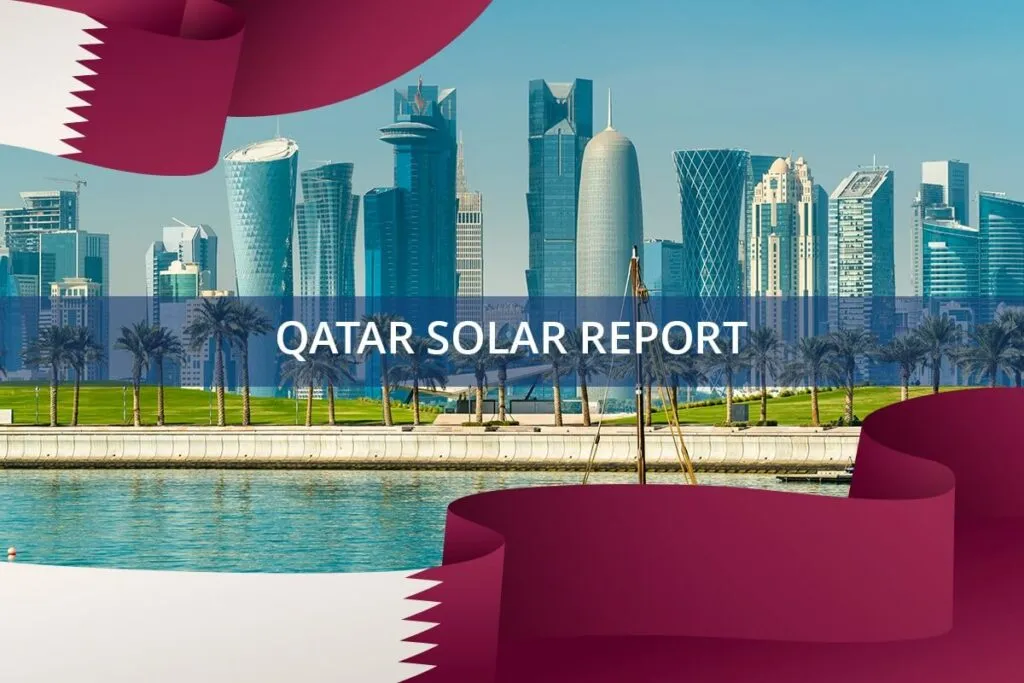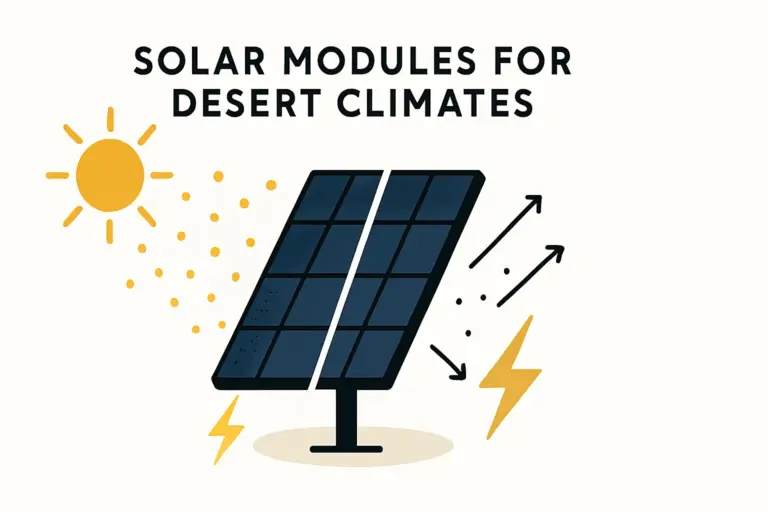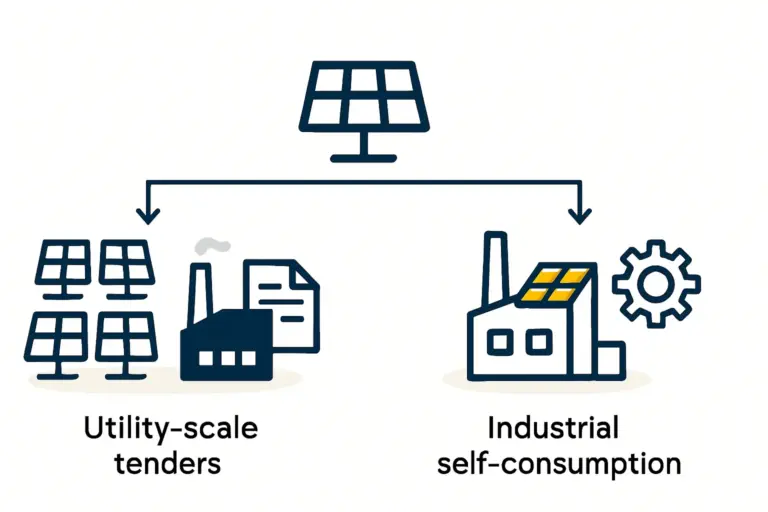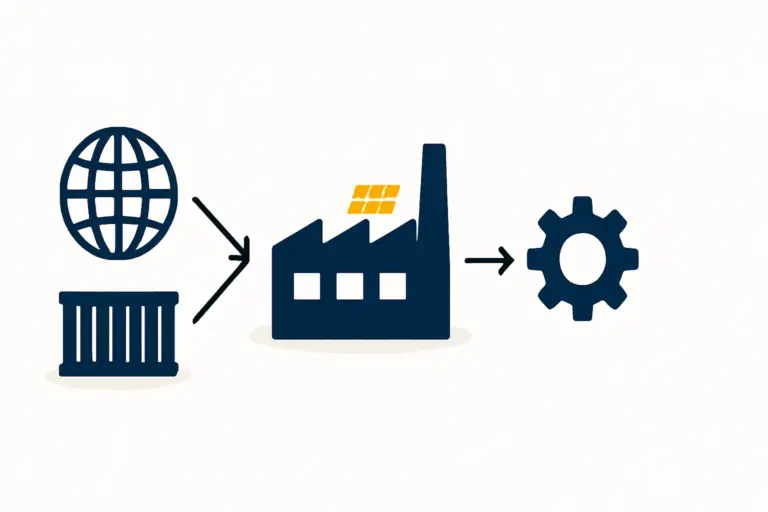An advanced solar module production line is a blend of precision machinery and human expertise. While entrepreneurs often focus on sourcing the best equipment, the success of a new solar factory—particularly in a unique market like Qatar—hinges on a less tangible asset: its people.
Building a competent, reliable, and motivated workforce is not an operational afterthought but a strategic pillar. It is essential for achieving quality, efficiency, and long-term viability.
This article lays out a practical framework for building and training a skilled team for a solar panel production line in Qatar. It addresses the critical decision between leveraging experienced expatriate talent and cultivating local expertise, providing a clear-eyed view of the challenges and opportunities inherent in the Qatari labor market.
Understanding Qatar’s Unique Labor Landscape
Before planning recruitment, understanding the local context is vital. Qatar’s labor market is distinct, shaped by national strategic goals and a demographic structure unlike almost any other in the world. According to official statistics, expatriates make up over 88% of the country’s population and form the backbone of its workforce across all sectors.
This reliance on foreign labor, however, coexists with the ambitious Qatar National Vision 2030. This national strategy emphasizes economic diversification away from hydrocarbons and the development of a knowledge-based economy. A key component of this vision is ‘Qatarization’—a government initiative to increase the number of Qatari nationals in the workforce, particularly in skilled and technical roles.
For an investor in the solar manufacturing sector, this creates a dual reality:
- Immediate Need: The fastest path to operational readiness often involves recruiting experienced expatriate technicians and engineers from established solar markets.
- Long-Term Strategy: Aligning with Qatar National Vision 2030 by investing in the training and development of local talent can yield significant benefits, including government support, greater workforce stability, and a stronger local footprint.
Furthermore, recent reforms to Qatar’s labor laws have significantly altered the employer-employee relationship. A thorough understanding of these regulations, including the dismantling of the Kafala sponsorship system for most workers and the introduction of a non-discriminatory minimum wage, is fundamental to building a compliant and ethical operation.
Defining Key Roles in a Solar Module Factory
A typical semi-automated solar module factory with an annual capacity of 20–50 MW requires a lean but skilled team of approximately 25 to 30 people per shift. These roles are best categorized by their function and required expertise.
Essential Workforce Structure
- Machine Operators (15–20 per shift): The largest group, responsible for the day-to-day operation of specific machines like the solar cell stringer, lay-up stations, and laminators. This role requires attention to detail, process discipline, and manual dexterity rather than deep technical knowledge.
- Technicians (3–5 per shift): Skilled staff responsible for machine setup, calibration, routine maintenance, and first-level troubleshooting. They have mechanical or electrical expertise and are critical to minimizing downtime.
- Engineers (1–2 per shift): These individuals oversee the entire production process, focusing on quality control, process optimization, and yield improvement. They typically have a background in industrial, mechanical, or electrical engineering.
- Quality Control Inspectors (2–3 per shift): This team ensures that raw materials and finished modules meet strict quality standards through visual inspection and specialized testing equipment, such as a sun simulator.
- Management & Administration (2–3): A plant manager, production supervisor, and administrative support are needed to oversee operations, logistics, and personnel.

Sourcing Talent: A Dual-Pronged Approach
The most effective strategy for a new facility in Qatar involves a balanced approach, combining the immediate experience of expatriates with a long-term commitment to developing local employees.
Leveraging the Expatriate Workforce
For specialized roles like process engineers and maintenance technicians, recruiting from abroad is often necessary. Countries with mature solar manufacturing industries—such as India, China, the Philippines, and parts of Europe—are a primary talent pool.
- Advantages: Recruiters can find candidates with direct, hands-on experience, significantly shortening the learning curve and accelerating the ramp-up to full production capacity.
- Considerations: This path involves navigating visa and immigration processes, along with providing accommodation and other expatriate benefits. Fostering a cohesive, cross-cultural work environment is also essential.
Cultivating Local Qatari Talent
Investing in local talent is a strategic imperative that aligns with national goals and builds a sustainable operation. While finding Qataris with direct solar manufacturing experience is unlikely, the focus should be on identifying candidates with strong foundational skills and a high potential for learning.
- Advantages: A locally-rooted workforce tends to have lower turnover and reduces long-term recruitment costs. It also demonstrates a commitment to the local economy, which can be helpful for securing government contracts or support.
- Considerations: This approach requires a substantial upfront investment in a structured, comprehensive training program. Partnering with local technical colleges or vocational institutes can be a valuable way to create a pipeline of qualified candidates.

The Cornerstone of Success: A Structured Training Program
Regardless of an employee’s initial experience, a robust training program is non-negotiable for ensuring safety, quality, and efficiency. Based on experience from J.v.G. turnkey projects, the most effective training is multi-layered.
Foundational Training for All Staff
Before anyone touches a machine, every team member must complete foundational training covering:
- Workplace Safety: Protocols for handling glass, electrical safety, and emergency procedures.
- Cleanroom Discipline: Understanding contamination control and the proper use of personal protective equipment (PPE).
- Quality Principles: An introduction to the importance of quality at every step of the production process.
Specialized Training for Operators
Operator training is primarily hands-on and machine-specific. A new operator for a critical machine like a solar laminator should progress through a structured program:
- Observation: Shadowing an experienced operator or trainer.
- Supervised Practice: Operating the machine under direct supervision.
- Independent Operation: Working independently once competency is demonstrated.
This process typically takes several weeks to ensure proficiency and consistency.
Advanced Training for Technicians and Engineers
The technical team requires more in-depth knowledge. For turnkey projects, J.v.G. Technology GmbH typically facilitates comprehensive programs where machine suppliers train the client’s key technical staff on-site during installation and commissioning. This ‘train-the-trainer’ approach empowers your core team to then pass that knowledge on to the rest of the workforce. This training covers advanced maintenance, diagnostics, and process control.

Retention Strategies in a Competitive Market
Recruiting a team is only half the battle; retaining them drives long-term success. In Qatar’s dynamic market, retention strategies must go beyond competitive salaries. Key elements include:
- Clear Career Progression: Provide opportunities for operators to become senior operators or technicians, and for technicians to advance into engineering or supervisory roles.
- Continuous Professional Development: Offer ongoing training to keep skills current with evolving technology.
- A Positive and Safe Work Environment: Foster a culture of respect, safety, and teamwork.
- Full Compliance: Adhere strictly to Qatar’s labor laws to build trust and demonstrate commitment to employee welfare.
By treating workforce development as a core strategic function, a new solar manufacturing enterprise in Qatar can not only achieve its production targets but also become a respected local employer contributing to the nation’s sustainable future.
Frequently Asked Questions (FAQ)
How many employees are needed for a small solar factory?
A semi-automated factory with a capacity of 20–50 MW typically requires around 25 to 30 employees per shift, including operators, technicians, quality control, and management.
What is the typical timeframe for training a new team from scratch?
A comprehensive training program for a full team, from foundational safety to machine-specific operation, generally takes between four and eight weeks. Key technical personnel may require longer, more intensive training with machine suppliers.
Is prior solar experience mandatory for all roles?
No. While highly beneficial for senior technical and engineering roles, machine operators can be trained effectively without prior industry experience. Key attributes for operators are diligence, a strong work ethic, and the ability to follow processes precisely.
How does Qatar’s climate affect factory work conditions?
The factory must be a climate-controlled environment, not only for worker comfort but also for process stability. Solar module production requires strict control over temperature and humidity (typically 22–25°C and 50–60% RH), meaning the internal environment is well-protected from external climate conditions.
What is the first step in planning for a solar manufacturing business?
Before diving into machinery or recruitment, the first step is developing a comprehensive strategy. Understanding the entire process, from initial investment to final product certification, is critical. For those starting this journey, our guide on how to start a solar panel manufacturing business provides the necessary structured overview.






